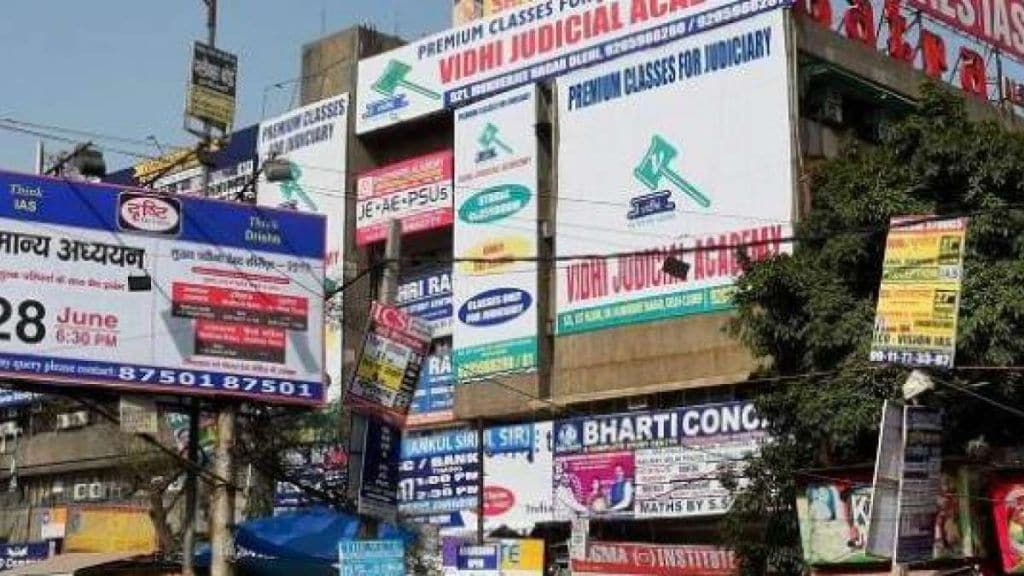By Rameesh Kailasam & Jharna Kamdar
With the rising number of private coaching centres, increasing unfortunate student suicides, concerns around unsafe facilities, misleading advertisements, inconsistent qualification of tutors, methodologies, fee structures adopted for coaching and absence of any policy or regulation, the Central government released model guidelines to govern coaching centres nationwide. The model guidelines are not mandatory, but provide guidance to state/UT governments to form laws on their basis.
The guidelines are only applicable to institutions having more than 50 students. They also recommend that no coaching centre shall enroll a student below 16 years of age or the student enrolment should be only after secondary school examination. Moreover, the guidelines advocate against coaching centres offering misleading assurances or guaranteeing specific ranks to parents and students. They also suggest that only tutors possessing at least a graduation-level qualification be authorised to instruct in coaching institutes. To ensure adherence, the government has proposed penalties for coaching centres found guilty of charging excessive fees, contributing to the undue stress resulting in student suicides, or engaging in other malpractices, with penalties ranging up to `1 lakh or annulment of registration.
To facilitate effective oversight, the government proposes that both new and existing coaching centres be registered within three months of the guidelines’ implementation. The responsibility for monitoring coaching centre operations and verifying compliance with registration criteria and operational standards falls on the respective state governments.
While the shortcomings of the coaching industry are undeniable, its rise also reflects genuine efforts to address gaps in the existing system. Thus, there is a need to reassess the prohibition of coaching centres for students below 16 years.
The National Education Policy (NEP) advocates for formative assessment and reforms in board and entrance exams to reduce the prevalent reliance on coaching. It is indeed perplexing that regulations on coaching centres are being given precedence over these crucial initiatives, highlighting a noticeable disconnect in the educational strategy.
The restriction on coaching enrollment for children below 16 also inadvertently overlooks the substantial duration required for thorough preparation for competitive exams, such as the JEE. The proposition of augmenting the number of attempts or commencing preparation at an earlier stage emerges as a potentially more efficacious remedy to this concern.
The coaching sector provides additional assistance within the traditional educational system, providing crucial support and employment opportunities for teachers. Completely banning or excessively regulating coaching centres without a coordinated effort to tackle fundamental systemic flaws only worsens the existing issues affecting the educational environment.
It is also necessary to introduce a comprehensive curriculum that prioritises the development of skills and critical thinking to reduce the current dependence on memorisation-based learning methods and alleviate the resulting stress linked to examinations.
Entrance exams like the National Eligibility Entrance Test and Joint Entrance Examination for undergraduate medical and engineering studies are intrinsically designed to winnow out aspirants. There were 17,385 seats across the 23 IITs last year, juxtaposed against an excess of 1.1 million students vying for these coveted admissions. The immense competition, combined with the societal belief that an IIT admission guarantees upward socioeconomic mobility, makes the guidelines potentially disadvantageous for students aspiring to secure such positions.
Chinese President Xi Jinping’s sweeping ban on for-profit classes in China serves as a sobering cautionary tale. Although seemingly aimed at easing financial pressures on families, it inadvertently led to the rise of excessively priced covert tutoring services, worsening the existing anxiety and financial stress experienced by students and parents. The idea of restricting certain aspects poses the threat of worsening existing educational inequalities, thereby perpetuating the significant gap between privileged and less affluent students, as the wealthy may still access private tutoring services.
To unlock its potential, the coaching industry must prioritise student well-being and adhere to ethical practices by building a self-regulatory model abiding by a charter that is mutually agreed by the government. Striking a harmonious balance between academic rigor and holistic development, addressing concerns related to financial strain and mental health, and ensuring utmost transparency in operations are indispensable steps toward fostering responsible growth.
Rameesh Kailasam & Jharna Kamdar, Respectively, CEO, and associate-public policy & research, Indiatech.org (TSIA). Views are peronal.

